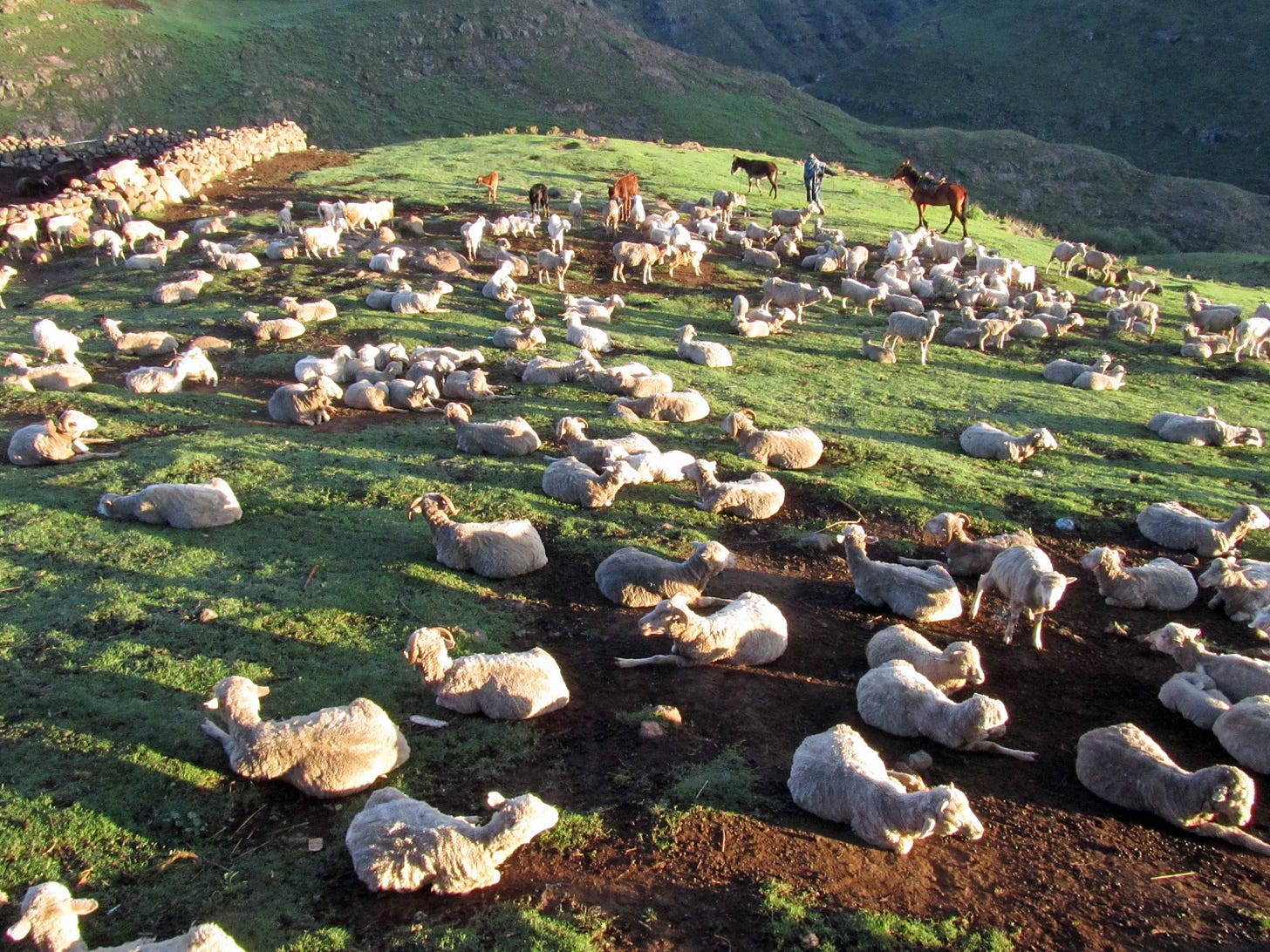Aid wars
Food for thought: Will food aid help or hurt these Lesotho farmers?
The debate about the impact of aid on African countries has divided scholarly opinion, with proponents, such as Jeffrey Sachs, saying that more is needed if we are to see an impact, and opponents - such as William Easterly and Dembisa Moyo - proclaiming that aid can do very little, and that in many cases it can actually do more harm than good. Sachs's The End of Poverty, for example, argued that development aid can help countries exit the poverty trap of low savings, low investment (in physical and human capital), low productivity growth, low income growth and, consequently, low savings. Aid can - exogenously - increase a country's investment in education, for example, which will increase productivity and propel it on a higher growth path, according to Sachs. In contrast, Easterly argued in his book The White Man's Burden that development aid do more harm than good by fostering dependency in recipient country governments (they aim to please the donor instead of their electorate), by focusing on the wrong projects (project impacts are often not measured scientifically), and by crowding out private sector activities - like farmers, when food aid is distributed - in the recipient countries. The vehement debate between Sachs and Easterly has often found an uneasy compromise in the absence of clear causal evidence on the impact of aid. Macroeconomic empirical studies find, as expected, a negative relationship between aid and growth, but that is because aid is directed at the poorest of countries. And while randomised field experiments can help, their results are often true only at the local level: de-worming programmes in Kenya work, yes, but does that mean development aid is good or bad everywhere else?
Nathan Nunn and Nancy Qian now offer convincing evidence that a specific form of aid - food aid - is bad for African countries. They use the highly exogenous impact of weather patterns in the United States to see whether fluctuations in US food aid causes the incidence, onset and duration of civil conflicts in recipient countries. It works like this: The price of wheat does not vary considerably in the US because of the high agricultural subisidies paid to farmers. In high production years, when a large surplus of wheat is produced, one would expect the US price of wheat to fall, but this does not happen. Instead, the he US government accumulates these surpluses and the next year sends them to African countries as food aid. Yes, regardless of whether African countries actually need the food. These (exogenous) fluctuations in food aid is what Nunn and Qian use to measure the impact of aid on wars in Africa. They find that an increase in US food aid by 1000 metric tons increases the incidence of civil conflict by 0.38 percentage points. "For a hypothetical country that receives the sample mean of US food aid - approximately 27,600 MT - and experiences the mean incidence of conflict - 17.6 percent, the estimates imply that increasing food aid by ten percent increases the incidence of conflict by approximately 1.14 percentage-points." Consistent with descriptive accounts of humanitarian aid being appropriated by small-scale rebel groups or refugee warriors to fund their military activities, they also find that there is a greater likelihood that US food aid causes small military conflicts (more than 25 deaths) rather than larger ones (more than 1000 deaths). While Nunn and Qian note the contribution of their study to several important literatures - the general impact of aid, aid and conflict, and the determinants of conflict - I would argue that their major contribution is to highlight another channel through which agricultural subsidies in the US and Europe continue to adversely affect African countries. Over and above the inability of African farmers to compete with the artificially low food prices of Europe and the US, Nunn and Qian demonstrate that surplus wheat production in the rich countries and the "dumping" of said surplus production in the guise of aid, further injures African farmers through increasing the likelihood of civil conflict and war. If we believe that improvements in agricultural productivity plays a significant role in a country's early stages of development - and we do! - then scholars on both sides of the aid divide should note that abolishing agricultural subsidies is the most important "aid" African countries need.
*Image source: globusturspb.ru


